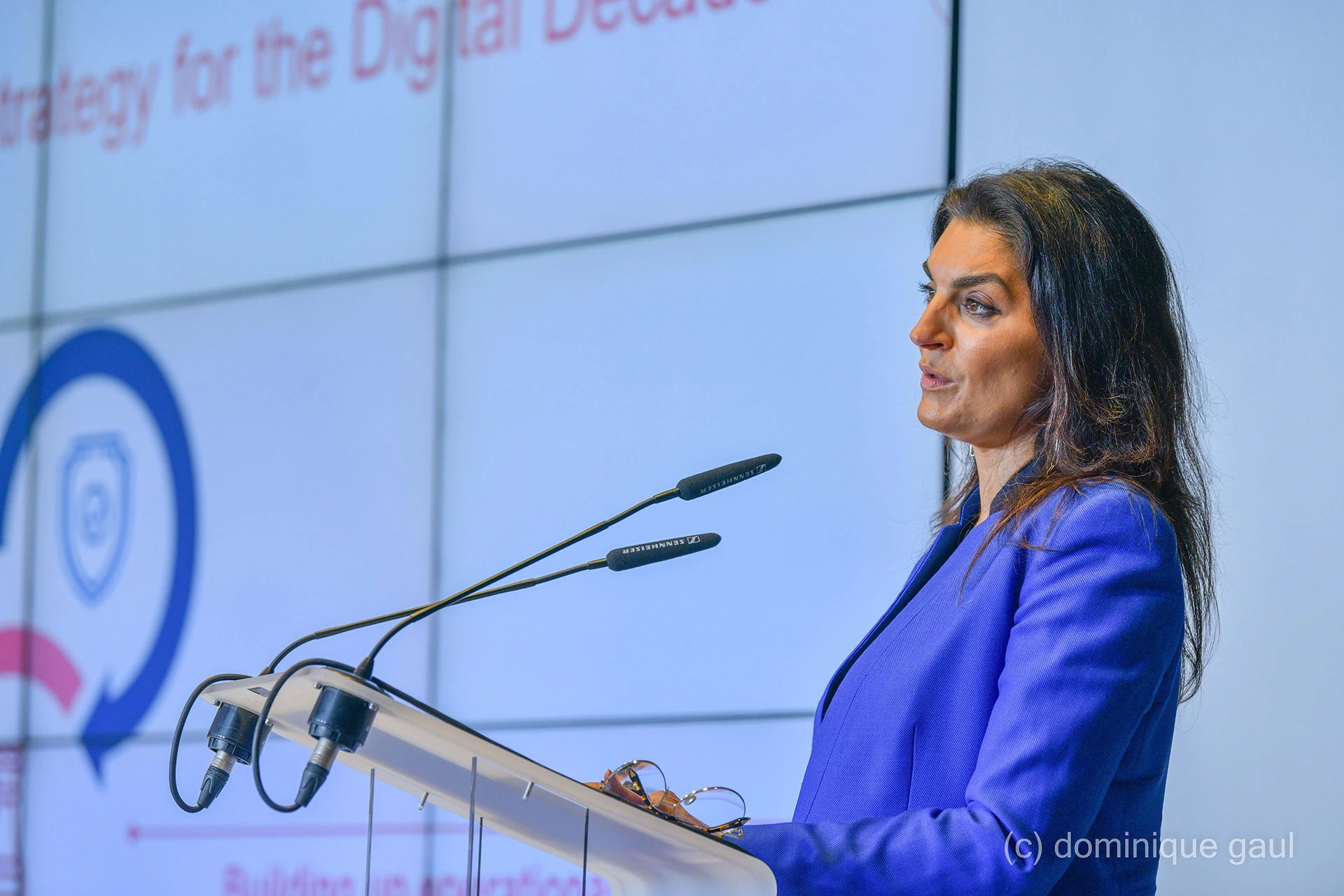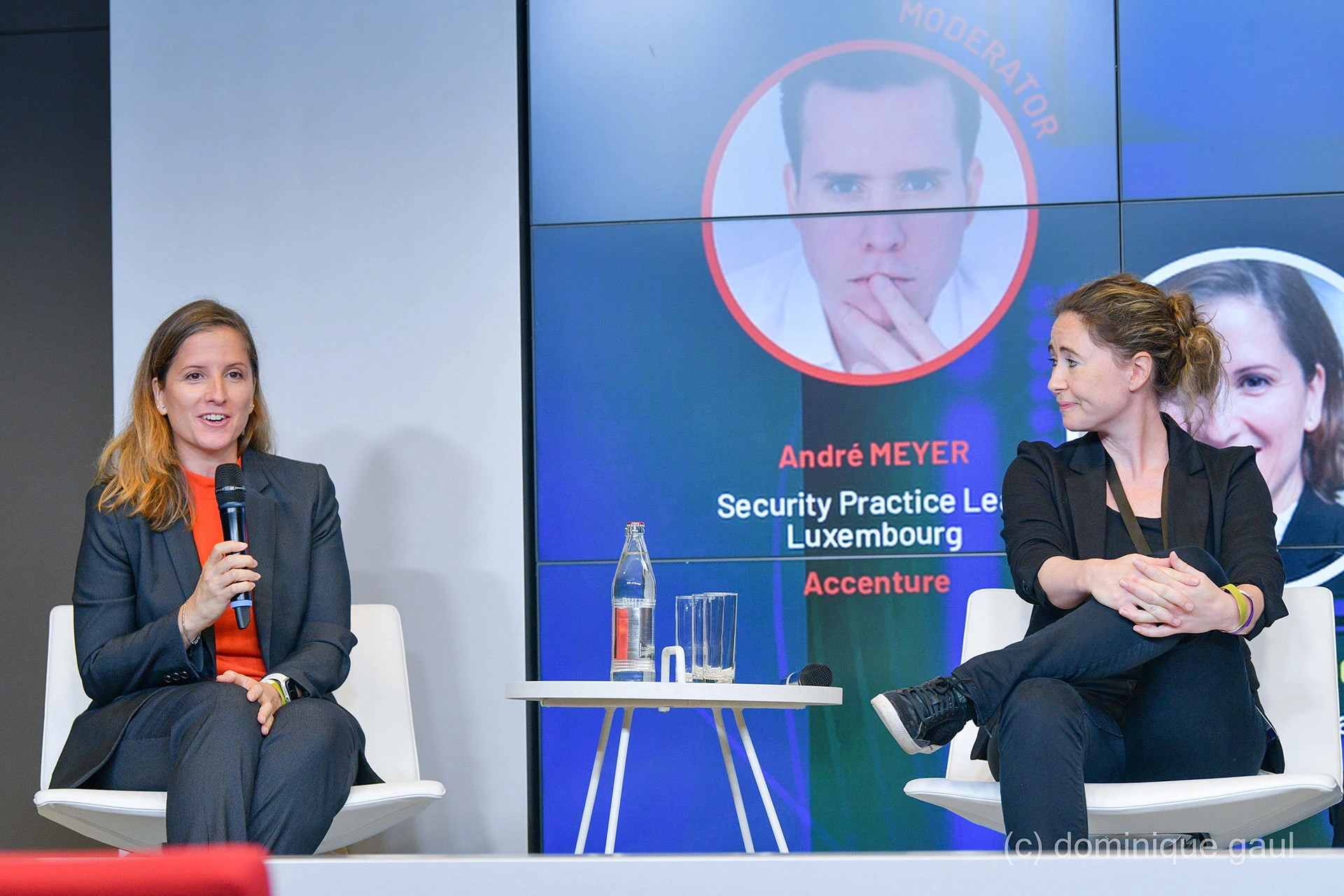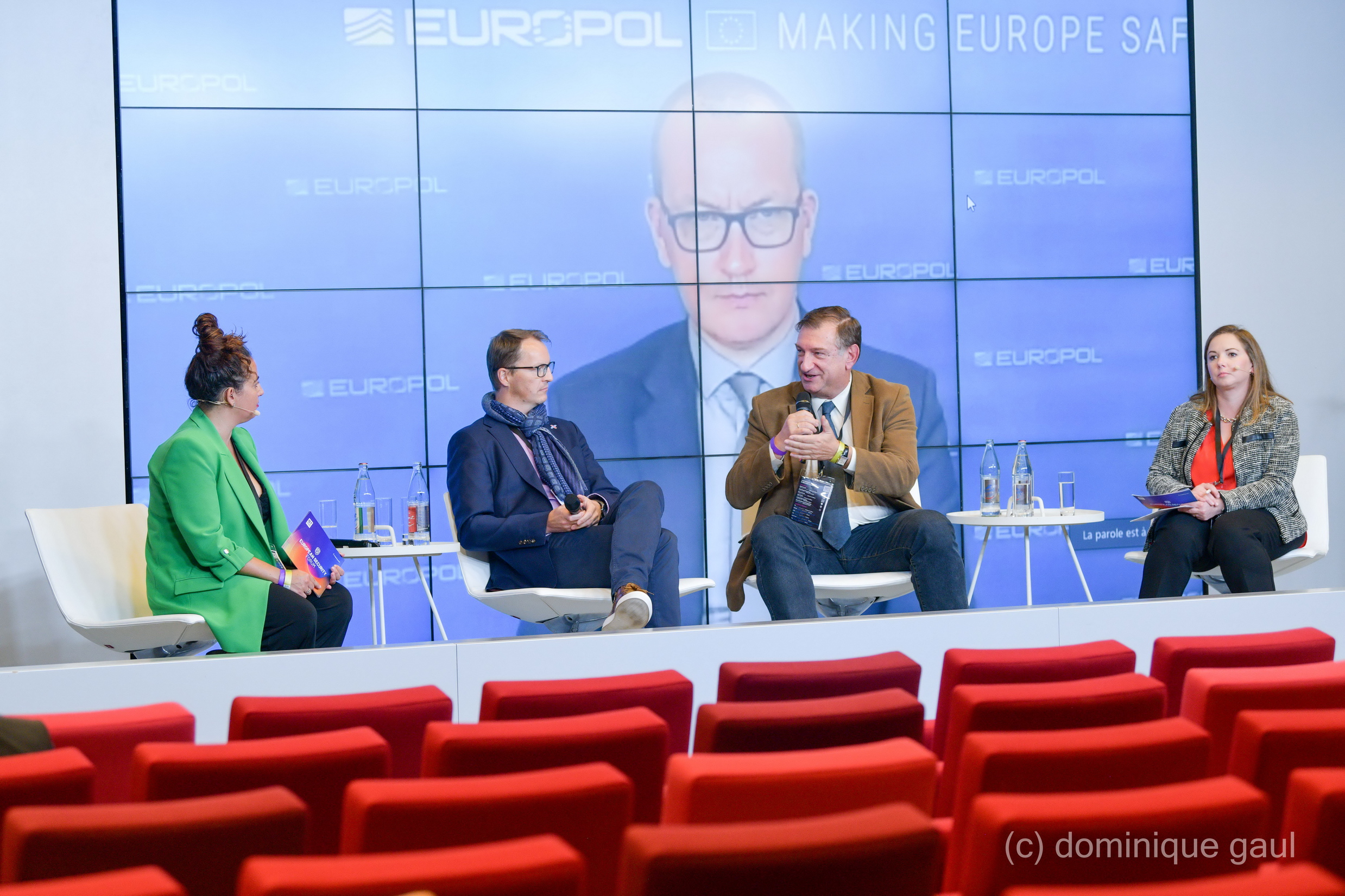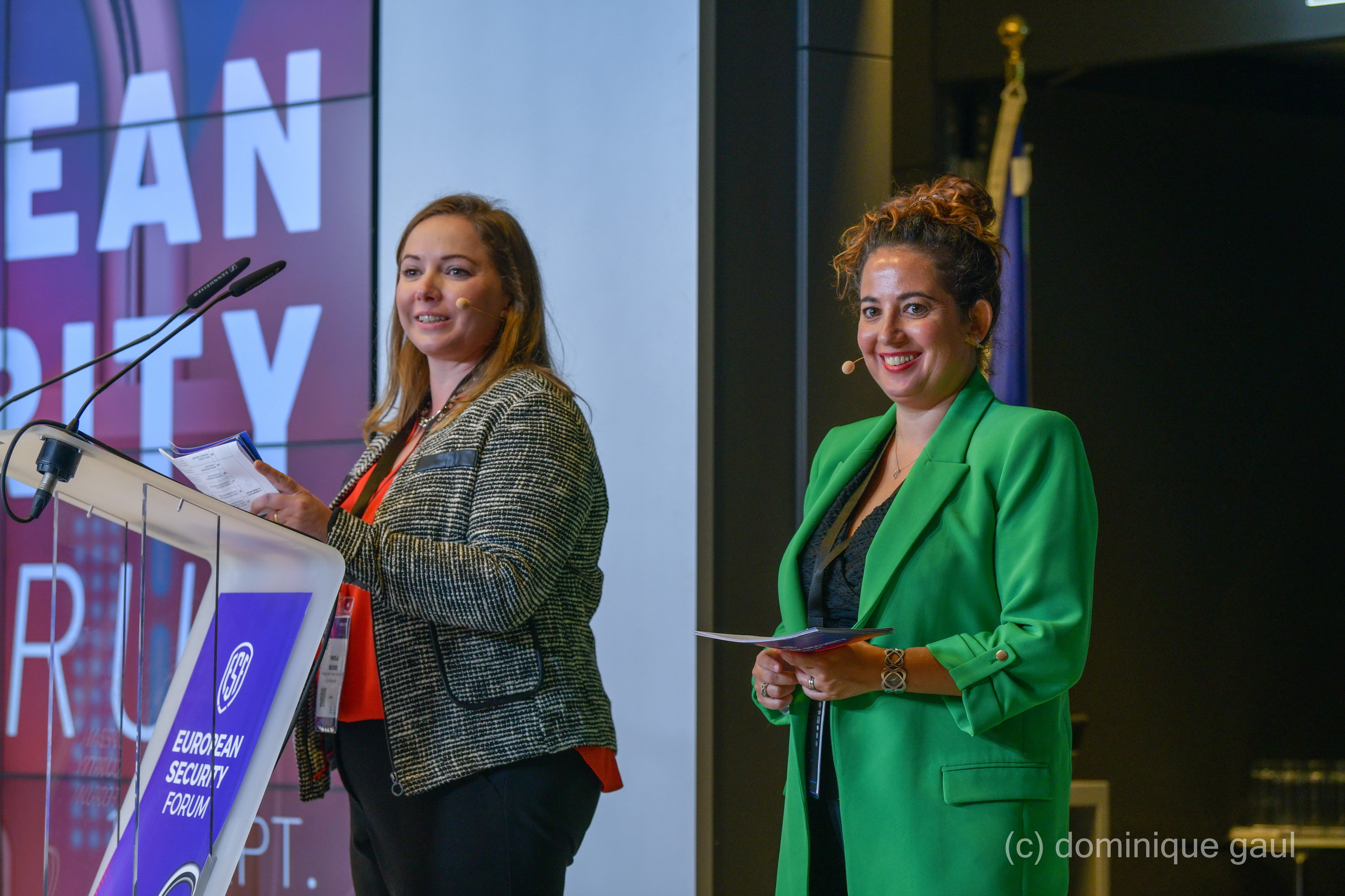“Data security: everyone’s business” and “The new era of Zero Trust” were the topics of the morning session of ICT Spring’s European Security Forum, which took place September 15th. Artificial Intelligence and Post Quantum Cryptography were at the heart of the discussions of the afternoon session. Local and international speakers discussed the latest trends in the cybersecurity field.
Sheila Becker, Vice President, Women Cyber Force, and Desirée Alegre, Secretary General, Women Cyber Force, were the masters of ceremonies of the European Security Forum.
The first speaker, Pascal Steichen, CEO, SECURITYMADEIN.LU, took the stage to welcome the participants, saying that cybersecurity, which used to be “a cryptic topic” for many, has become the “main topic of many companies, states and even individuals worldwide”. A trend has only grown stronger with the pandemic.
Steichen was followed by François Thill, Cybersecurity Director, Luxembourg Ministry of the Economy, who gave an introduction talk about cybersecurity as a community and called for a mutualization of security solutions at the European scale to lower costs: “We need high quality and affordable cybersecurity solutions that can profit to all companies, not only to the wealthy economy.” Regretting the lack of women in the sector, Thill wants the cybersecurity to reach priority level on managers’ agenda to achieve a culture of cybersecurity governance.

“EU Security & Cybersecurity Union Strategy” was the title of the presentation delivered by Despina Spanou (photo), Head of Cabinet for European Commission Vice President Margaritis Schinas & Founding member of Women4Cyber. “Cybersecurity Strategy is not something that stands alone anymore, it is an integrated part of Security Strategy in the broad sense of the term”, stated Spanou.
After Despina Spanou, Alexander Hanff, Co-founder & CEO, Think Privacy, brought “A message from the future…” for the audience. His speech was above all the story of a disillusionment with what the internet has become, from a utopian place of democratization, for sharing knowledge, to an area of “commoditization, manipulation and surveillance” run by psychographic profiling and algorithms.

““Why Cybersecurity is everyone’s business in an organization?” was the question asked by André Meyer, Security Practice Lead Luxembourg, Accenture, in a round table which brought together Barbara Daroca, Head of Corporate Services, ING, Niccolo Polli (virtually), CEO, HSBC Luxembourg, Nasir Zubairi, CEO, the LHoFT, Debora Plein, Coordination BEE SECURE, Ministère de l’Éducation nationale, de l’Enfance et de la Jeunesse (Luxembourg), and André Adelsbach, VP – Group Information & Cyber Security, SES.
Frédéric Becker, Project Manager, Luxembourg Ministry of the Economy, then, took the stage for a “Luxembourg Trade & Investment Offices session: connecting with startuppers worldwide”, with Adi Hod, CEO, Velotix, Chad Duffy, Director of Cloud Engineering and Global Marketing, CyCraft, and Steven Hsu, Product Marketing Director, TXOne Networks.
“New frontiers in data privacy” was the name of the next presentation given by David Dab, National Technology Officer for Belgium and Luxembourg, Microsoft.
“The new era of Zero Trust” was the topic of the second session of the European Security Forum, which started with Christophe Ruppert, Business Continuity Management – Practice Lead, EBRC, and José F. Correia, Chief Administration Officer, CISO, Business Continuity Manager, i-Hub.
Pascal Rogiest, Chief European Institutions Officer, RHEA Group, and Managing Director of RHEA System Luxembourg S.A., then gave an overview of “The Critical Role of Cybersecurity in Space Applications & Programmes”.
Tomas Martinkenas, Director of Privacy and Security, Vinted, then joined virtually from Lithuania the forum virtually for a CISO Talk.
The morning session ended with Stefan Umit Uygur, CEO, 4securitas, who pitched about his business model. 4Securitas is an innovative cyber security firm founded in 2017 focused on protecting critical data at the core of every organisation.
The title of the first speaker’s intervention, “If you can’t measure it, you can’t improve it”, is a good summary of Chris Nickerson’ (CEO of LARES) speech. Accumulate data is not a solution.
The organizers then welcomed Alain Hirtzig, Head of CyberLabs, Cyberforce, POST Luxembourg, who shared a presentation entitled “Privacy preserving AI”. Quantity and quality of data is one of the most important factors to build advanced and powerful machine learning and AI applications. To this end, you need data sharing but this process raises up two main issues : privacy and data abuse.
David Cox, Director of Mastercard’s European Cyber Resilience Centre (ECRC), then took the stage virtually to share his thoughts on “Cyber Resilience and Public Private Partnerships”. He insisted on the cost and lost revenue from cyber-attacks around the world (estimated to reach 5.2 trillion in the next five years) to emphasize the importance of cyber resilience.
Live from Japan, Mihoko Matsubara, Chief Cybersecurity Strategist, NTT Corporation, highlighted the “Cybersecurity lessons learned from Tokyo 2020 & COVID-19”.
Eric Singer, Regional Chief Information Security Officer – EMEA, Schneider Electric, and Lucas Colet, Cybersecurity Manager, INCERT GIE, then participated in a CISO talk. They teamed up saying that in the last 20 years, “ransomware was a turning point” to raise awareness of the importance of cybersecurity.
David Cox, CEO, Brainframe, joined the stage for a startup pitch. Brainframe provides information security management system (ISMS) for security and compliance professionals, helping to collect information, document compliance, manage work and distribute to the staff.

The afternoon session continued with Sokratis K. Katsikas, Director of Norwegian Center for Cybersecurity in Critical Sectors (NORCICS), Pascal Steichen, CEO, SECURITYMADEIN.LU, and Edvardas Šileris, Head of European Cybercrime Centre (EC3), EUROPOL, who participated in a round table about “Cybersecurity sovereignty for Europe”. Europe Parliament defines digital sovereignty as the ability of the EU to act independently in the digital world.
The last session of the European Security Forum was dedicated to “Post Quantum Cryptography”. André Meyer, Security Practice Lead Luxembourg, Accenture, concluded the Forum with an intervention titled “Quantum Supremacy – Understanding the future of cryptography”.
A more extended report of the the two sessions can be read here and here, by Nicolas Klein.
Pictures by Dominique Gaul.
